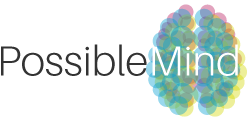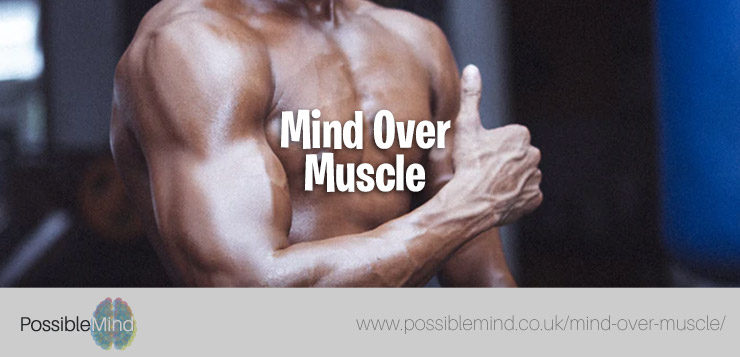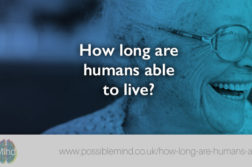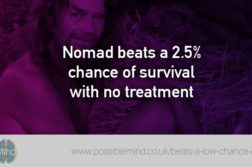How using your brain could help your bones.
Perhaps you’ve heard of the “placebo effect” in clinical trials — that strange situation when some people who don’t receive a beneficial intervention see a benefit to their health anyway, for no obvious reason. By way of explanation, most clinical researchers think that when participants believe they will improve because of the “treatment,” their body takes its cue from the mind and responds as if a therapeutic agent is actually being used.
If only we could capture this seemingly magical ability of the mind to direct the body — what could it do for our own ability to heal?
Mental imagery makes a difference
In fact, a few years ago, some researchers showed that we can capture this ability (Clark et al. 2014). They induced muscle weakness in 29 adult volunteers — healthy people who had more or less similar muscle strength at baseline — by immobilizing the hand and wrist of the subjects’ non-dominant arm using a rigid cast (15 other volunteers had nothing done to their arm and served as controls). They trained 14 members of the group with immobilized wrists in a mental imagery program in which they were told to imagine their immobilized hand and wrist was doing specific movements, such as flexing and pushing, without actually activating the muscles. An electromyogram was used to make sure they didn’t actually flex their muscles during the mental imagery sessions. The remaining 15 people whose arms were immobilized were not given mental imagery training.
What they found was startling: In the participants who underwent mental imagery training, the loss of muscle strength associated with immobilization was half that of those who didn’t get training. They also concluded that lack of neurological activity, rather than lack of muscle activity, accounted for almost a one-third of the strength decrease in the immobilized arm. In other words, simply directing the brain’s attention to the nervous system in a specific part of the body provides sufficient stimulus to the musculoskeletal system to make an important difference.
A mind-body-bone connection?
I’ve noted before that bone strength depends on muscle strength, and most of us know that muscle strength is a “use it or lose it” proposition. This study shows how the power of the mind can be brought to bear on muscle strength — and though it didn’t look at bone specifically, if you’re supporting muscle, you’re also supporting bone. I can’t help but wonder whether a study that also looked at the effects on participants’ bone mass might not show a similar improvement in bones! I bet you dollars to donuts it would.
Reference
Clark BC, Mahato NK, Nakazawa M, Law TD, Thomas JS. The power of the mind: the cortex as a critical determinant of muscle mass. J Neurophysiol. 2014;112(12):3219–3226.
This article was written by Dr. Susan E. Brown and was originally published on www.betterbones.com on November 27th, 2017.
If you like this post you will also enjoy:
- Imagery Can Help You Recover from Injuries and Illness – Learn Mind Power With John Kehoe.
- Mind Power and Belief for Recovery and Healing.
- How Athletes Recover Quicker Using Mind Power.
- The Healing Power of Illness Book Overview.
Further Reading:






